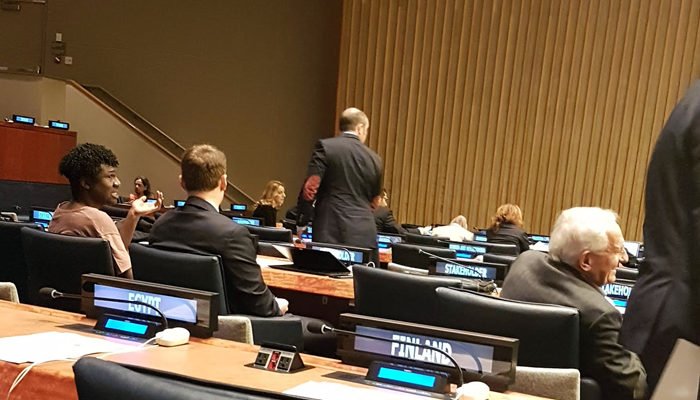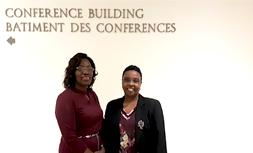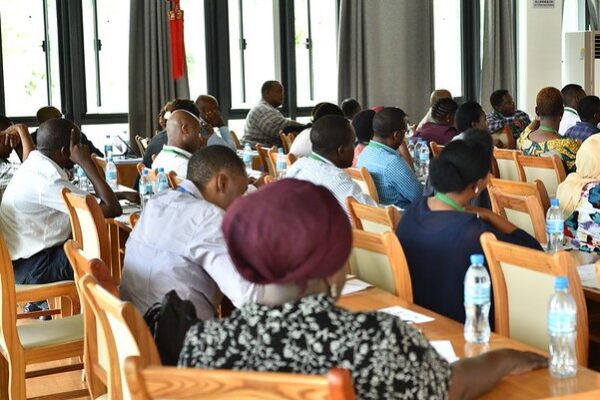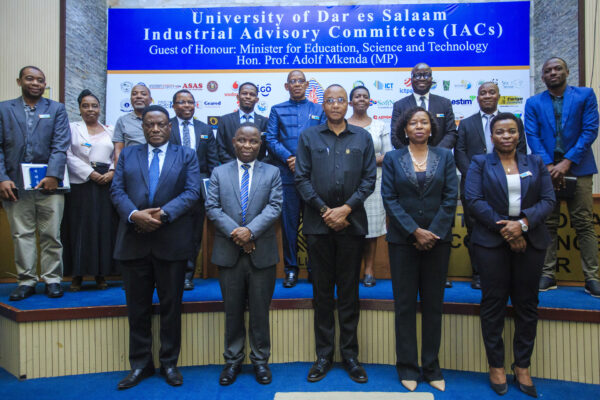Tuesday, May 16, 2017 |
Dr. Bitrina Diyamett’s Speech on STI capacity building for achieving SDGs at the 2017 UN STI Forum, 16th May, 2017, New York City
On Tuesday, the 16th of May, 2017, Dr. Bitrina spoke at Session-5, which was focused at exploring currently existing STI policies for capacity building and science advisory systems, discussing the ways and means to bridge the remaining gaps. The session – in addition to Bitrina – had two other speakers: Prof. Geoffrey S. Boulton, President, CODATA and Prof. James Querry, Philadelphia University, ICGC, USA.

Dr. Bitrina introduced her 7 minutes speech by saying that the session is one of the most important sessions of the Forum as it is at the heart of the strategies of achieving sustainable development: “I believe that the true meaning of sustainable development is when a society has built enough technological and innovation capabilities to competently and sustainably satisfy their social and economic needs in an inclusive way”. She concluded this introductory part by saying that the process of achieving sustainable development is actually the process of building technological and innovation capabilities, defined as the ability to produce and make effective use of technological knowledge in efforts to improve and produce new technologies – underlying the word use of knowledge.
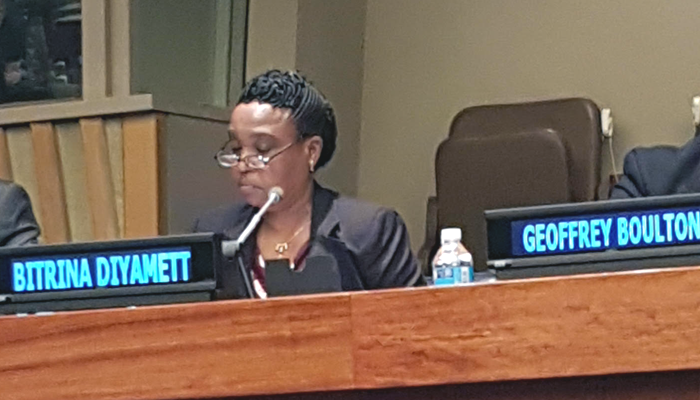
Existing efforts to build STI capacities:
Taking the example of an African continent, she explained following as existing efforts towards STI capacity building:
- Recognition of the importance in development – many development plans in African countries now mention the role of STI
- Some knowledge Infrastructure in place - institutions and ministries, e.g. Sectoral R&D institutions and technology transfer offices at universities.
- Promulgation and reviews of S&T policies to include innovation – e.g. Tanzania and several other African countries.
- Training of scientists, e.g. STEM training, with gender issues taken on board
Remaining Challenges:
Dr. Bitrina explained that despite the fact that some of such efforts dates as far back as the 1980s, their impact on social and economic development is minimal as poverty has either remained the same or even increased in many parts of Africa, underlying the fact that the major challenge is the policy itself. She explained that policies – in terms of enabling environment for innovation and accessing useful technologies – have been and are still central to socio-economic development in all countries. She mentioned the following as remaining policy challenges:
- They are not informed by local evidence, emanating from the fact that capacity for STI policy research and production of STI statistics is very poor in Africa. This shortcoming is also in part responsible for the poor science advice system in Africa – of course included also is unclear system for science advice.
- There is serious lack of sectoral policy coordination with that of STI: STI policies are stand alone.
- Poor governance of the STI system: For most governments, there is no clear overall Agency that is responsible for the coordination and capacity building of the system.
- There is generally poor expertise on STI policy making and implementation, largely emanating from the poor conceptual understanding of how the triplet STI works in an African context: statements that consider STI as one thing such STI funding and STI training are common. This brings ambiguities in policies, making proper implementation impossible. For instance – as a result of the poor understanding on how the triplet works together, capacity building for STI have exclusively focused on the supply side of the knowledge; and where the demand side has been considered, the focus is on exclusively small micro and isolated projects, with very little link with major systemic issues at the macro level.
Three most important recommendations:
i) Policy is important – good policies are determining factors in the proper functioning of the national systems of innovation, and therefore top priority should be given to capacity building in STI policy making, including STI policy research. Emphasis is especially placed on the demand side innovation policies that trigger knowledge use. More over these are policy issues that were neglected in the past efforts in STI capacity building
ii) A strong private sector – especially the manufacturing, which is richest in employment – is important for development, including poverty alleviation: Train the private sector in innovation management; limited evidence indicates that companies in Africa learn and innovate only through routine activities of production and selling. However, in the currently changing innovation environment, they need to be agile, proactively searching avenues for innovation; and this requires capacity building
iii) Responsible trade and investment policies, especially the FDI: These two are important vehicles for innovation capacity building. However, with the current innovation environment where there is increased rate of technological change and automation, the traditional approach to international trade is counterproductive to poor countries. First the time for learning and improving imported technologies is much shorter due to rapid technological change; and second, automation radically reduces the cost of production in developed countries, leading to cheaper imports killing local industries in poor countries.
